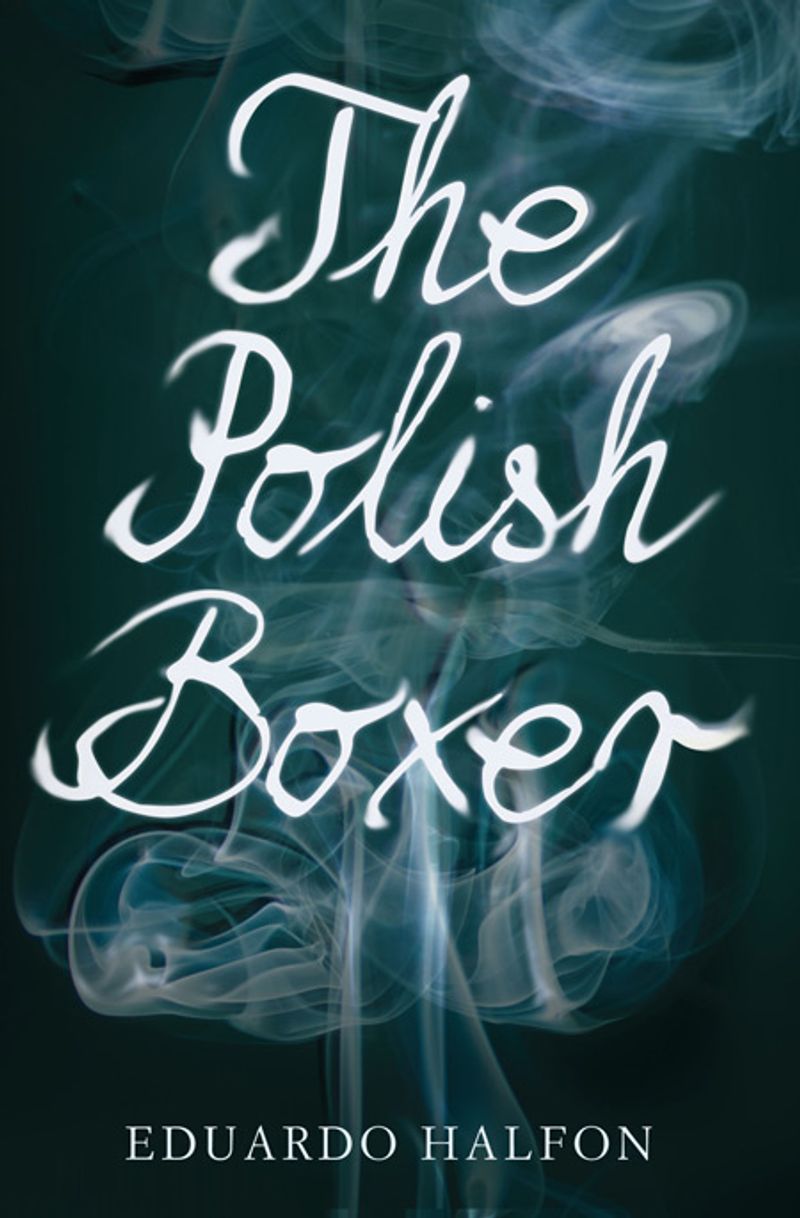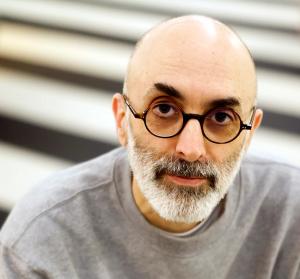The Polish Boxer
The Polish Boxer covers a vast landscape of human experience while enfolding a search for origins: a grandson tries to make sense of his Polish grandfather’s past and the story behind his numbered tattoo; a Serbian classical pianist longs for his forbidden heritage; a Mayan poet is torn between his studies and filial obligations; a striking young Israeli woman seeks answers in Central America; a university professor yearns for knowledge that he can’t find in books and discovers something unexpected at a Mark Twain conference. Across his encounters with each of them, the narrator—a Guatemalan literature professor and writer named Eduardo Halfon—pursues his most enigmatic subject: himself.
Mapping the geography of identity in a world scarred by a legacy of violence and exile, The Polish Boxer marks the debut of a major new Latin American voice in English.
In consultation with the author, The Polish Boxer is translated from the Spanish by an accomplished international team of five: Ollie Brock, Thomas Bunstead, Lisa Dillman, Daniel Hahn, and Anne McLean.
José María de Pereda Prize for the Short Novel
International Latino Book Award Finalist
New York Times Editors’ Choice
Los Angeles Times “Holiday Gift” selection
Two-time San Francisco Chronicle “Top Shelf” selection
Shelf Unbound “Top 10 Book of the Year” selection

Ebook
- ISBN
- 9781934137567
Paperback
- ISBN
- 9781934137536
Read an NPR interview with Eduardo Halfon, then tune in to NPR’s Alt.Latino to hear him spin tunes and talk about Guatemala, Latin American cultural identity, jazz, writing, living in Florida and Nebraska, the influence of Bob Dylan, and much more.
Discover the remarkable story behind The Polish Boxer’s path to English publication (via New Spanish Books), more about its origins in Guernica, and how strange it is to be “Translated from English to English, by Way of Spanish” (via Words Without Borders).
Eduardo Halfon is the author of The Polish Boxer, Monastery, Mourning, Canción, and Tarantula (forthcoming from Bellevue Literary Press in May 2026). He is the recipient of the Guatemalan National Prize in Literature, International Latino Book Award, Edward Lewis Wallant Award, and Berman Literature Prize,among many other honors. A citizen of Guatemala and Spain, Halfon was born in Guatemala City, attended school in Florida and North Carolina, and has lived in Nebraska, Spain, Paris, and Berlin.
visit author page »Praise for The Polish Boxer
Engrossing . . . The Polish Boxer by Guatemalan novelist Eduardo Halfon, is a semi-autobiographical tale about roots and origins, identity and cultural loss, and the complex relation between the individual, his or her family story, and the heavy burden of History . . . Short but intense.
Elegant.
— Marie Claire
A professor mentors a student, gains wisdom from a Mark Twain scholar and searches for a Gypsy musician, and that’s only part of the story in this incredible, achingly real yet enigmatic novel.
Tight and lean . . . falling somewhere between the novels of Roberto Bolaño, WG Sebald, and Junot Díaz.
— Telegraph
A mix of finely nuanced prose and humor.
— World Literature Today
This book provides multiple pleasures: clear, intense prose; sharp, laugh-out-loud depictions of classrooms and conferences . . . and the apparent seamlessness of the translations . . . . The book itself gives a resounding retort to those who might dismiss it as ‘another’ book ‘about’ the Holocaust.
In the simplest explanation, The Polish Boxer is a series of encounters for literature professor Eduardo—with a young poet, university professors at a Mark Twain conference, his grandfather, his charming girlfriend, who draws her orgasms, and Milan Rackic, a Serbian-Gypsy pianist. In the more complex explanation, it is a journey of self-discovery.
— ForeWord Reviews
Eduardo Halfon has been deemed one of the best young Latin American writers by the Hay Festival of Bogota; read his first work to be translated into English, The Polish Boxer, and you’ll see why.
— Shelf Unbound
A brave and touching and dead stylish examination of the nature of fiction, truth and lies.
— Dazed & Confused
Halfon’s curiosity about his grandfather’s experience in a concentration camp burns through every chapter from the most subtle level to deep investigation . . . He has succeeded in warping a modern Balkan mystery into a Holocaust memoir . . . intrinsically blend[ing] fiction with reality in a deeply visceral way.
— Rumpus
Eduardo Halfon is a brilliant storyteller, whose gifts are displayed on every page of this beautiful, daring, and deeply humane book.
— Daniel Alarcón, author of War by Candlelight and Lost City Radio
Eduardo Halfon’s prose is as delicate, precise, and ineffable as precocious art—a lighthouse that illuminates everything.
— Francisco Goldman, author of Say Her Name
The Polish Boxer is the most memorable new novel I have read all year—the voice pitch-perfect, the imagery indelible. What a wonderful writer.
— Norman Lebrecht, author of The Song of Names
The Polish Boxer is an enchanting, unclassifiable book of encounters, impressions, and improvisations: a book for the ages, which can be read in one sitting, and then again, and again, and again.
— Christopher Merrill, director of the International Writing Program at the University of Iowa and author of The Tree of the Doves: Ceremony, Expedition, War
It is not often that one encounters such a mix of personal engagement and literary passion, or pain and tenderness.
— Andrés Neuman, author of Traveler of the Century
Eduardo Halfon belongs to a new generation of Latin-American writers who, from the beginning, demonstrate an impeccable mastery of their craft, without any hesitation in the use of language.
— Sergio Ramírez, former Vice President of Nicaragua and author of Margarita, How Beautiful the Sea
God, I loved this book from the first page to the last. It is deeply moving, imaginistic, achingly real and yet thoroughly enigmatic. Each experience while sharply told escapes easy meaning and yet sets us up in wonder—how was that so we ask? Halfon cares so much for his story and those who inhabit it that we simply want to squeeze his hand and say thank you, this book is a gift, a marvel.
— Sheryl Cotleur, Copperfield’s Books in Northern California’s Sonoma County
Halfon’s book is one that I just keep thinking about and wondering about. It’s not possible to describe it neatly other than to say that it’s shape-shifting and without one genre and written beautifully.
A Guatemalan literature professor named Eduardo Halfon (postmodern coincidence?) searches for his origins throughout the world in this slim, haunting novel. Through stories of a gypsy Serbian pianist, Israeli travelers, and his Jewish grandfather, Eduardo seeks to understand how exile, his own and others’, has shaped his identity, and how people cope with the yearning for a homeland that they’ve never had.

